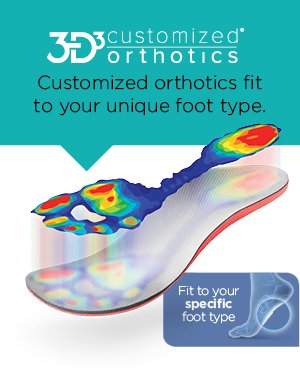SWOLLEN FEET & LEGS
(EDEMA)
Learn more about diagnosis, treatment, and prevention
What causes swollen feet and legs?
Your feet and legs swell when fluid builds up in the space between the cells of your body. There are many reasons this can happen, some quite serious and many minor or transient. You should consult your doctor to determine the cause of your swelling, which you may hear referred to as edema.
Among the possible causes for swollen feet
& legs:
- Serious condition of the kidney, heart, liver or blood vessels.
- Varicose veins or inflammation of the veins (phlebitis).
- Trauma, such as an ankle sprain.
- Poor diet that's high in salt and carbohydrates.
- Sodium retention.
- Allergic reactions.
- Neuromuscular disorders.
- Birth control pills.
- Hormone replacement therapy.
- Pregnancy.
- Premenstrual syndrome.
At first, you will probably notice swelling more as the day progresses. But if left unchecked, the swelling will start setting in earlier and earlier and get even worse throughout the day. You may experience pitting edema, where the swollen area remains indented if pressed, or open sores.
Think you may have problems from swollen feet or legs?
TAKE THIS SELF-ASSESSMENT
Self- Assessment Quiz
- Does the swelling start earlier in the day than it used to?
- If I press on the swollen area, does the skin stay indented afterward?
If you answered yes to either of these questions, your swollen feet or legs may be getting worse. TAKE THE NEXT QUICK QUIZ TO DETERMINE IF YOU ARE SHOWING ADDITIONAL SYMPTOMS.
Self- Assessment Quiz
- Open sores?
- High blood pressure?
- Headaches?
- Palpitations?
- Swollen hands or wrists?
- Puffy eyes?
- Increased weight?
If you answered yes to any of these questions, you could be experiencing complications related to your swollen feet and legs. Consult your doctor and read on to find information on treatment and relief from the experts at FootSmart.
Are there any serious concerns?
Swollen feet or legs have many minor and temporary causes. But they can also be an indication of a much more serious problem with your heart, kidney, liver or blood vessels, so be sure to consult your doctor to determine the cause.
Even swelling caused by less serious conditions can have ill effects if left untreated. Long-term swelling (known as edema) can cause pitting—where the skin stays indented if pressed—or open sores called skin ulcerations. In some people, especially diabetics, ulcerations can progress quickly to infection, abscess, or even a life- or limb-threatening emergency.
How do I treat and prevent swollen feet or legs?
Your first line of defense is elevation. Elevate your legs higher than your heart for maximum benefit while reducing pressure on the back of your knees, thighs and lower back. Sitting in a recliner with your legs up can be a great, simple remedy for swelling.
You may also want to try:
A Leg wedges, specially designed cushions placed under the legs to elevate your feet while sleeping.
B Compression socks, hosiery, or calf sleeves, which provide “graduated compression” that helps reduce swelling. Graduated compression means that the hosiery is tightest around the areas of your worst swelling (usually your feet or lower leg). While comfortable to wear, the hosiery helps relieve discomfort from swelling.
C Air pressure leg and foot massagers, which you can buy over-the-counter. These massagers replicate some of the benefits of compression pump therapy, such as simulating circulation and alleviating pain.
D Low-impact exercise, which helps with circulation and can alleviate swelling. This may include walking, yoga, or light aerobics.
Other steps you should take to minimize swelling include:
- Wearing shoes and socks that fit properly.
- Walking often, to increase muscle activity.
- Avoiding standing in place for long periods of time.
- Avoiding putting weight or pressure on your feet when sitting.
- Drinking plenty of water.
- Limiting salt intake.
- Trying a short course of diuretics. (Be careful not to overuse them.)
- Being careful not to overuse laxatives.
Your doctor may also recommend:
- Starting compression pump therapy. The pumps use pressure to get blood and fluids moving up through the body, which reduces swelling and improves circulation.
- Discontinuing hormone replacement therapy, which causes swelling in some women.
- Discontinuing contraceptive pills, which can also cause swelling in some people.
If the swelling continues or gets worse, make sure to consult your doctor.

